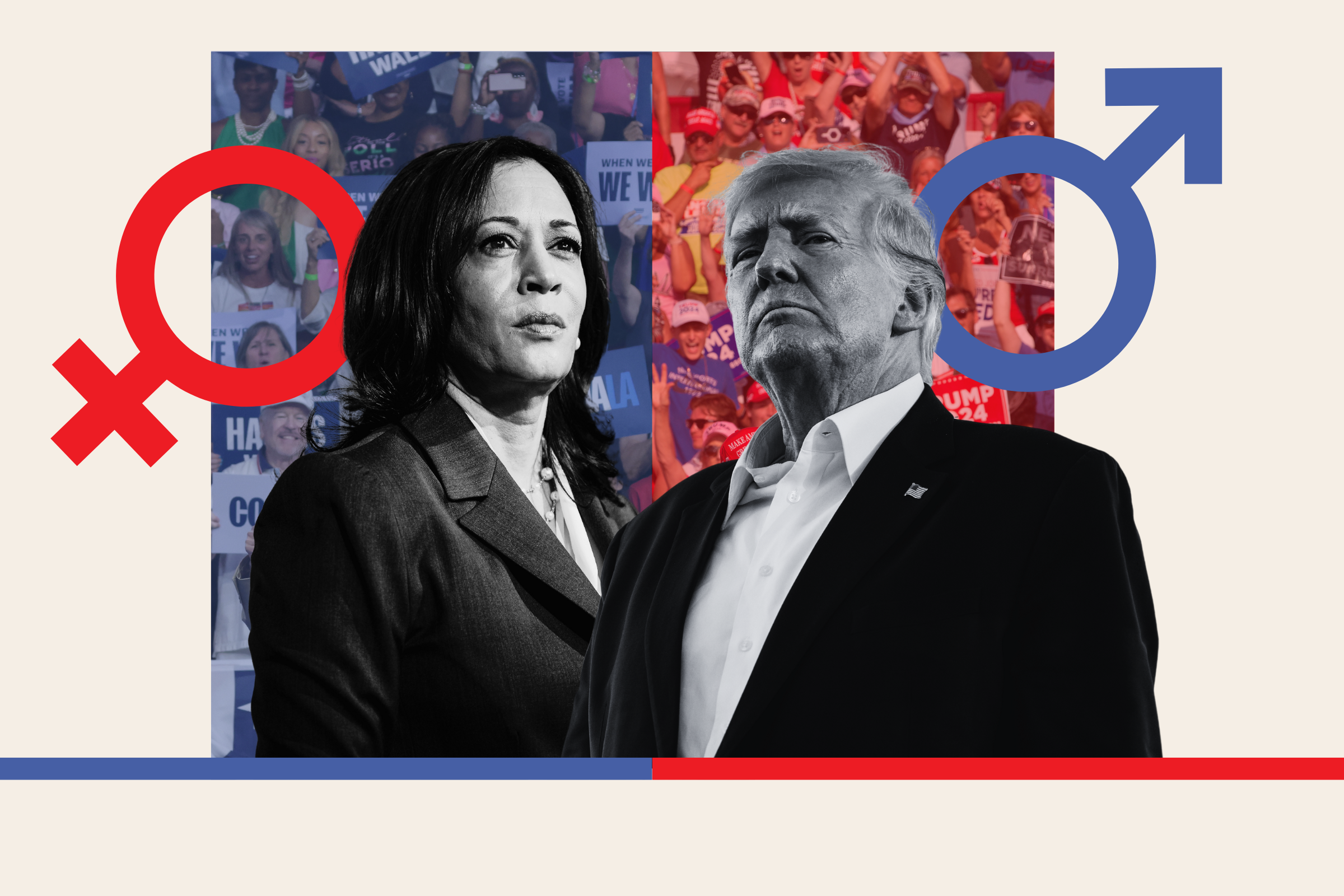The upcoming November presidential election may witness a historical gender divide, as suggested by recent polls and expert insights.
A recent New York Times and Siena College poll conducted from August 5 to 9 with 1,973 likely voters in Michigan, Pennsylvania, and Wisconsin indicated a staggering 35-point gender gap between Vice President Kamala Harris and former President Donald Trump. Among men, Trump had a 14-point lead (52% to 39%), while Harris led by 21 points with women, garnering 56% to Trump’s 35%.

Further emphasizing this trend, a recent Quinnipiac University poll found Harris leading women by 16 points (56% to 40%), while men favored Trump by 23 points (60% to 37%), creating a notable 39-point gender gap.
In comparison, the gender gap stood at 24 points in 2016 and 23 points in 2020, according to an NBC News exit poll.
Melissa Deckman, a Professor of Public Affairs at Washington College, noted that the political rift between genders is widening. She explained that Gen Z women lean significantly more liberal than Gen Z men, as evidenced by a 2021 Gallup poll showing 44% of women ages 18 to 29 identifying as liberal, contrasted with only 25% of young men.
As young men appear to lean towards Trump, it signals a potential shift in party loyalty that Republicans haven’t seen for over two decades. If Trump continues attracting young male voters, he might lead this demographic, contrasting with 2020 when young men supported Biden by 15 points.
Experts suggest that this divide can be attributed to differing party messages. Jackson Katz, Ph.D., an expert on gender dynamics, criticized the Democrats for not adequately addressing young men’s concerns, stating, “Kamala keeps focusing on issues like abortion while failing to tackle everyday concerns like the rising cost of living.”
On the other hand, Carrie Baker, a Professor of Women, Gender and Sexuality, emphasized that Republicans have effectively engaged young men with resonant messaging—something Democrats have yet to accomplish.
A study from the Young Men’s Research Initiative found that when policies resonate with young men—such as affordable housing—they show more support for female candidates compared to when the focus is on gender representation alone.
Interestingly, some young Republican men feel neglected by Democratic policies that emphasize diversity and issues perceived to undermine traditional values. Recent Pew Research Center data highlighted that a significant number of men believe women’s advancement is at their expense.
However, Deckman posits that young men’s support for Trump may stem more from economic situations rather than a rejection of feminism, noting that many young women are achieving financial independence faster than their male counterparts.
Despite these challenges, there’s a glimmer of hope for Democrats. The choice of Minnesota Governor Tim Walz as Harris’ Vice Presidential nominee is seen as a strategic move to connect better with male voters.
Katz argued that Walz’s military background and experience as a high school football coach give him relatable credentials that could sway traditional male voters back to the Democratic fold, turning the GOP’s narrative upside down.
